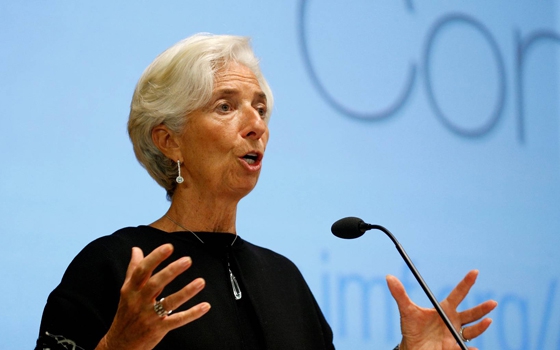The International Monetary Fund’s executive board on Friday approved Egypt’s request for a $12 billion loan facility, after the North African country met its requirements to implement tough measures to revive its floundering economy.
The first tranche of $2.75 billion can be disbursed immediately and will be added to the cash-strapped country’s international reserves, the IMF said.
Egypt in recent months has secured additional financing worth billions of dollars, floated its tightly managed currency and cut fuel subsidies, efforts that received strong support from IMF Managing Director Christine Lagarde.
Ms. Lagarde earlier this week said she would recommend that the board approve Egypt’s request for financial assistance in support of its ambitious economic reform program that would help restore macroeconomic stability.
The country late last week floated the Egyptian pound and allowed it to substantially weaken against the U.S. dollar, while also raising the price of fuel.
These moves are expected to increase the cost of living for ordinary people in the Arab world’s most populous country.
But Egypt has little choice. It needs the IMF cash to help revive an economy struggling to recover from years of political unrest and a recent spate of terrorist attacks, which have hurt its two biggest foreign cash earners—tourism and foreign direct investments.
Egypt’s foreign reserves fell by more than half to about $16 billion earlier this year from pre-2011 levels. Recent aid and loans helped boost those reserves to $19 billion at the end of October, data from the country’s central bank showed.
As cash reserves depleted, Egypt rationed its dollars to pay for essentials such as wheat and medicines, forcing businesses to turn to the black market to fulfill their foreign-currency requirements.
With the IMF funds and aid from other countries and agencies—the central bank on Thursday said it has secured $2 billion in financing from international banks—Egypt would be able to meet some of that market requirement for dollars and ease the pressure on its currency.
The Egyptian pound traded at about 16.20 per U.S. dollar Thursday, according to several local banks, compared with a rate of about 8.88 per dollar that the central bank had maintained since March. That has also narrowed the gap between the official exchange rate and the black market.
A weaker currency will also improve Egypt’s external competitiveness, support exports and tourism and help attract foreign investment, the IMF has said.
Egyptian stocks closed 4.5% higher Thursday, extending gains since last week’s announcements on expectations that the currency float and other measures will likely help the country secure the much needed IMF loan.
The Wall Street Journal
13 November

























































